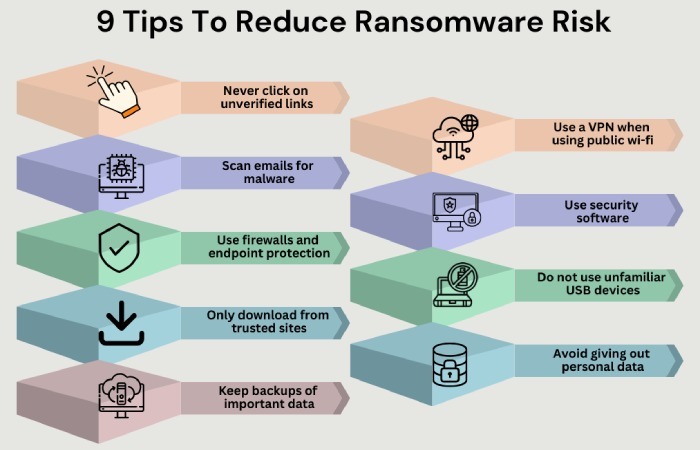DeepSeek targets Google, South Africa Cyberattack, FBI Warns Scams

Before we realized it, Q1 2025 swooshed by! It’s the fourth week of March, and we are back with our weekly dose of cyber news. We bring you fresh cyber news every week because we believe educating yourself about cybersecurity is the first step towards safeguarding yourself from threats.
This week, we are going to find out how DeepSeek users are targeting Google users. Next, we will talk about the major security breach faced by the African poultry brand. Lastly, we will focus on why the FBI has warned document converter tools.
Let’s not waste any more time and get started with this news bulletin!
DeepSeek users are targeting Google users with malware!
If you are not sitting under the rock, you must have already heard a lot about the new AI in town- DeepSeek. This relatively new gen-AI tool is already garnering suspicion because of its association with China. Soon, it became an absolute favorite among threat actors. They are now using DeepSeek to come up with advanced and appealing social engineering schemes.
Recently, researchers at Malwarebytes have found out that some fake DeepSeek ads are doing the rounds in Google results. These ads are designed to deliver malicious malware to naive Google users. Experts at Malwarebytes believe that the fake ads may not look convincing enough. However, the links are quite appealing and can effortlessly trick users into clicking on them and downloading malware unknowingly.
As soon as an unsuspecting user clicks on one of these malicious links, a Trojan programmed in MSIL (Microsoft Intermediate Language) gets downloaded.

Experts at MalwareBytes have urged Google users to be extra attentive and keep an eye on malicious links. Protect your email security by implementing SPF, DKIM, and DMARC protocols to safeguard against cyber threats like phishing, malware, and other malicious activities targeting your inbox. Here are a couple of identifiers to tell real ads from fake ones:
- The URL of a fake DeepSeek ad will be different from that of a legitimate domain.
- It is possible to check whether or not the advertiser is a legitimate brand owner. You can do so by clicking on the three dots behind the URLs.
- It is best to avoid clicking on any sponsored search results.
A South African poultry farm fell prey to a cyberattack last week!
Astral Foods, a reputed South African poultry brand, recently faced a cyberattack, which caused a loss worth $1.1 million. Being one of the largest poultry producers, the company has multiple subsidiaries, such as Tiger Animal Feeds, Ross Poultry, National Chicks, Provimi, and County Fair. Its major operations include hatching eggs, manufacturing animal feeds, broiler genetics, and so on.
It is not yet clear what type of cyberattack Astral Foods faces. But the moment the news about the cyber breach incident came out, Astral Foods resorted to mitigation protocols. As per a letter that the brand has sent out to the stakeholders, the Poultry Division was badly affected by a severe downtime, further leading to delays in processing and customer deliveries.
Astral Foods has claimed that no sensitive data of the customers or the employees was compromised during the cyberattack. Also, it has informed that all the day to day operations are taking place normally as the systems have already been recovered.
FBI issues warning against document converter tools because of uptick in scams!
The FBI in Denver has recently issued a warning against scammers who are trying to scam users by providing free-of-cost online document converter tools. These tools are being used by threat actors to load malware onto the victim’s device. The scammers can use any type of free document converter. These tools perform as advertised but also give complete control of your device to the threat actors. It can even get as severe as ransomware attacks, as stated by the FBI.

Such tools may also have the ability to scrape data out of your submitted files. The same data is then used for accessing personal identifying details such as dates of birth, Social Security Numbers, contact numbers, bank details, email addresses, passwords, and cryptocurrency information.
The FBI at Denver field is urging the victims to come out and report such scams. They believe that the best way to curb such cyber scams is to educate people about these fraudsters. That’s why they want more and more victims to share their experience and take relevant actions against the scammers.
The FBI also said that so many victims do not even realize that their device has been compromised by a malware attack until they lose all their data or their identity is stolen.
The best way to protect yourself from such malware attacks is to avoid using free online document converter tools. Next, you must keep your virus scan software updated. Also, scanning any file through it is completely non-negotiable. In case you are already a victim of this scam, connect with the financial institutions and change all the passwords by using a trustworthy, malware-free device.







